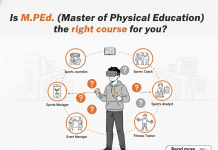- Introduction
- Why Choose B.Tech. Electronics and Communication Engineering (ECE) at LPU?
- Outstanding Placement Opportunities
- Advanced Infrastructure, Labs & Digital Resources
- Research & Innovation
- Skill Development, Certifications & International Exposure
- Projects, Internships & Industry-Academia Collaboration at LPU
- Student Experience at LPU
- LPU at a Glance
- LPUNEST – Gateway to a Future-Proof B.Tech. ECE Career
- Start Your LPUNEST Application
- Final Words
- Frequently Asked Questions (FAQs)
Introduction
The B.Tech. Electronics and Communication Engineering (ECE) at LPU is one of the most dynamic and career-focused engineering programmes, designed to meet the growing needs of the modern technology sector. With rapid advancements in electronics, communication networks, and artificial intelligence, this field offers exciting career prospects across industries such as telecommunications, IT, consumer electronics, defence, and automation. The LPU electronics engineering curriculum ensures that students develop both a strong academic foundation and practical skills that are directly relevant to the workplace.
The overview of the ECE programme at LPU highlights its unique approach that blends core learning with specialization. The B.Tech. Electronics and Communication Engineering programme is structured to ensure mastery of essential subjects like electronic devices, microprocessors, circuits, and communication systems, while also providing opportunities to explore advanced areas. Students can choose from multiple specializations such as Communication Systems, Signal and Image Processing, Embedded Systems, VLSI Design, and Artificial Intelligence.
What sets this programme apart is its flexibility and future-readiness. The course is not just about building technical expertise—it is also designed to nurture problem-solving skills, innovation, and leadership. Whether students wish to become successful entrepreneurs, pursue corporate careers with leading multinational companies, or continue into research and higher studies, the B.Tech. Electronics and Communication Engineering (ECE) at LPU opens doors to diverse opportunities.
In addition, the university’s focus on practical exposure, industry collaborations, and global opportunities ensures that students graduate as well-rounded professionals who can adapt to evolving technologies and business landscapes. This makes the programme one of the best in B.Tech Electronics and Communication Engineering in India.
| Did you know? LPU ECE students get to work with Microcontroller 8051, ARM, and ATMEGA development boards, and implement real-world systems like temperature control and stepper motor projects in labs. |
Why Choose B.Tech. (Electronics and Communication Engineering) at LPU?
When it comes to engineering education, selecting the right university can shape your academic journey and career. The benefits of studying ECE at LPU extend far beyond classroom teaching, offering a perfect mix of academics, innovation, and industry exposure. This is why many students consider LPU one of the best destinations for pursuing Electronics and Communication Engineering.
The programme not only builds a strong foundation in electronics, circuits, and communication systems but also gives students opportunities to specialize in cutting-edge areas like Signal and Image Processing, Communication Systems, Embedded Systems, VLSI Design, and Artificial Intelligence.
Unique Features of LPU ECE
- Modern Labs & Infrastructure: Advanced labs for robotics, embedded systems, microprocessors, and communication networks.
- Choice of Specializations: Pathways in emerging technologies to prepare students for future-ready careers.
- Industry Collaborations: Tie-ups with global leaders such as Intel, Cadence, and Texas Instruments provide access to industry-standard tools and certifications.
- Global Exposure: Semester exchange programmes, international internships, and joint research with partner universities.
- Placement Support: Dedicated training, mock interviews, and career guidance that connect students with top recruiters across ECE, IT, telecom, and electronics sectors.
Industry Immersion at LPU
One of the strongest unique features of LPU ECE is its emphasis on industry immersion. To help students keep pace with evolving technologies, the university has built strong collaborations with leading industries. Studying industry-driven modules as part of the curriculum provides students with a wild card entry to the industry, giving them a competitive advantage in placements.
Through these partnerships, students benefit from:
- Live projects and internships that mirror real corporate environments.
- Workshops and guest lectures are conducted by top professionals from the electronics and communication sector.
- Research collaborations and industry certifications, boosting both technical and professional profiles.
This combination of academic depth, industry immersion, and global exposure makes the benefits of studying ECE at LPU truly exceptional. Students graduate with not just a degree, but also the skills, confidence, and opportunities to succeed in diverse career paths.
| Did you know? The university has specialized labs for Robotics & Automation, Communication Networks, RF & Microwave, and Embedded Systems, giving students practical exposure to cutting-edge technology. |
Outstanding Placement Opportunities
The LPU ECE placements are a strong highlight of the programme, reflecting the university’s commitment to preparing students for real-world success. With a dedicated placement cell, specialized training, and strong industry partnerships, LPU ensures that Electronics and Communication Engineering students are among the most sought-after graduates.
The electronics engineering placement record at LPU showcases impressive outcomes year after year. Students have been placed in top multinational corporations, core electronics companies, and fast-growing startups, with roles ranging from design engineers and communication specialists to software developers and system analysts.
Top recruiters offering jobs after B.Tech. Electronics and Communication Engineering (ECE) at LPU include:
- Global Tech Leaders: Microsoft, Google, Amazon, and IBM.
- Core Electronics & Telecom Giants: Intel, Samsung, Qualcomm, and Texas Instruments.
- IT & Consulting Firms: Infosys, Wipro, Cognizant, Capgemini, and Accenture.
- Emerging Startups & R&D Units: Opportunities in AI, IoT, VLSI, and embedded systems.
Career Roles After B.Tech. Electronics and Communication Engineering (ECE) at LPU
Graduates of this programme are well-prepared to step into diverse professional roles, such as:
- Design Engineer – working on electronic circuits, semiconductor devices, and system design.
- Telecom Engineer – developing and maintaining communication systems and networks.
- R&D Specialist – innovating and conducting research in advanced electronics and communication technologies.
- Embedded Systems Developer – designing software and hardware for microcontrollers and IoT devices.
- VLSI Engineer – working on integrated circuit (IC) design and chip development.
- Network Analyst/Engineer – ensuring efficient design, operation, and security of communication networks.
- Software Developer – contributing to coding, applications, and system-level programming.
- AI & Data Science Professional – applying machine learning and AI concepts in electronics and communication systems.
In addition to core placements, many students also pursue higher studies or government job pathways, creating a wide spectrum of opportunities. With continuous training in communication skills, aptitude, and technical expertise, the LPU ECE placements continue to strengthen the university’s reputation as one of the best in B.Tech Electronics and Communication Engineering.
Advanced Infrastructure, Labs & Digital Resources
Lovely Professional University provides one of the most advanced electronics labs and infrastructure for ECE students, ensuring that learning goes beyond textbooks and into real-world applications. The ECE labs at LPU are equipped with state-of-the-art instruments, hardware platforms, and software tools to give students hands-on experience in core and emerging areas of B.Tech. Electronics and Communication Engineering.
Embedded Systems Design Laboratory
The lab is equipped with Microcontroller 8051 programmers, ARM development boards, ATMEGA development boards, and Microprocessor 8085 & 8086 boards, along with essential interfacing hardware and multimeters. Students implement hardware projects such as input/output devices, temperature control systems, stepper motor control systems, and LED display interfacing. This lab provides practical exposure to microcontroller and microprocessor-based system design, bridging theory with industry-relevant applications.
RF and Microwave Laboratory
Students work with microwave benches and components, implementing antennas and studying their radiation patterns. The lab also allows analysis of microwave signals, giving students in-depth knowledge of high-frequency communication systems.
Robotics and Automation Laboratory
Equipped with mobile robots, robotic arms (4 and 6 degrees of freedom), pneumatic & hydraulic control panels, PLCs, SCADA, DAQ cards, and Image Acquisition cards with LabView, this lab helps students explore robot mechanisms, dynamics, and intelligent controls. Using servo drives, actuators, sensors, and software like LabView and ROS, students design and fabricate working robotic systems as part of group projects, gaining hands-on experience in automation and control systems.
Communication Network Project Lab
With tools like Cisco Packet Tracer, routers, modems, WIC cards, smart serial cables, crimping tools, RJ-45 connectors, and Cat 5 cables, students implement routing protocols, troubleshoot networks, and configure communication systems, simulating real-world networking scenarios.
Centre of Excellence Laboratories
- Texas Instruments Laboratory: Analogue system design boards, TIVA Launchpad, MSP series development tools, and solar energy harvesting tools. Postgraduate and PhD students can undertake research using advanced instruments.
- Intel Laboratory: Tools including 13.56 MHz RFID modules, DF Robot starter boards, sensors for heart rate and fingerprint detection, and Intel Edition boards support research and innovation.
- Cadence Laboratory: Industry-standard EDA tools from Cadence, Mentor Graphics, and Xilinx, including Verilog, VHDL, FPGA boards, and simulation software. Postgraduate and PhD students can explore advanced projects in design and simulation.
With such a comprehensive infrastructure and digitally enriched labs, ECE students at LPU gain practical knowledge, hands-on skills, and research exposure that make them industry-ready and competitive in the global electronics and communication sector.
| Did you know? LPU has partnerships with Intel, Texas Instruments, and Cadence, providing students access to industry-standard tools and certifications. |
Research & Innovation
Lovely Professional University places a strong emphasis on ECE research at LPU, encouraging students to explore new ideas and contribute to the advancement of technology. The university fosters a culture of innovation in electronics engineering, allowing learners to work on cutting-edge projects and develop solutions for real-world challenges.
Students are actively involved in student projects in ECE that span areas such as embedded systems, VLSI design, robotics, communication networks, signal processing, and artificial intelligence. These projects not only enhance technical knowledge but also cultivate problem-solving, critical thinking, and teamwork skills.
The university’s advanced labs and Centre of Excellence facilities provide the perfect environment for research. Students use industry-standard tools and software, including Cadence, Xilinx FPGA boards, LabVIEW, and Intel and Texas Instruments development kits, to design, simulate, and implement innovative electronic systems.
Furthermore, LPU encourages students to present their research in national and international conferences, file patents, and publish papers in reputed journals. This strong focus on innovation in electronics engineering equips students with the expertise and confidence to pursue careers in R&D, product development, and higher studies, making them highly competitive in the global electronics sector.
By combining academic rigour with hands-on research opportunities, ECE research at LPU ensures that students are not only learners but also innovators and problem-solvers ready to make a significant impact in the field of electronics and communication.
| Did you know? LPU ECE students get to work with Microcontroller 8051, ARM, and ATMEGA development boards, and implement real-world systems like temperature control and stepper motor projects in labs. |
Skill Development, Certifications & International Exposure
At Lovely Professional University, skill development in ECE is a top priority. The curriculum is designed not only to teach theoretical concepts but also to enhance practical skills that are directly relevant to the electronics and communication industry. Students gain hands-on experience through workshops, simulation exercises, lab projects, and industry-driven assignments, preparing them to meet evolving technological challenges.
LPU also offers a wide range of certifications for electronics engineers, allowing students to validate their expertise in specialized areas such as embedded systems, VLSI design, communication networks, IoT, robotics, and artificial intelligence. Certifications from industry leaders like Intel, Texas Instruments, and Cadence help students enhance their technical credibility and increase employability.
In addition, global exposure at LPU provides students with opportunities to participate in semester exchanges, summer schools, international internships, and collaborative research projects with partner universities abroad. This international experience helps students understand global industry standards, develop cross-cultural competencies, and build a network of professional connections, giving them a competitive edge in the global job market.
By combining skill development, certifications, and international exposure, LPU ensures that ECE students graduate as well-rounded professionals, equipped with the knowledge, practical experience, and global perspective required to excel in the dynamic field of electronics and communication engineering.
Projects, Internships & Industry-Academia Collaboration at LPU
One of the key strengths of the B.Tech. Electronics and Communication Engineering (ECE) at LPU is its strong focus on practical learning through ECE internships at LPU, live projects in ECE, and industry tie-ups in electronics. These initiatives provide students with hands-on experience and direct exposure to real-world applications, bridging the gap between classroom learning and industry requirements.
The programme covers a wide range of cutting-edge areas, including:
- Communication Systems – Study of modern communication techniques for data and signal transmission.
- Wireless Communication – Design and implementation of mobile, satellite, and wireless networks.
- VLSI – Very Large Scale Integration for designing and developing microchips and integrated circuits.
- Internet of Things (IoT) – Connecting devices and sensors for smart systems and automation.
- Embedded Systems – Designing specialized computing systems within hardware and electronics devices.
- Signal and Image Processing – Analysis, interpretation, and enhancement of digital signals and images.
- Robotics and Automation – Building intelligent robotic systems for industrial and research applications.
- Artificial Intelligence and Machine Learning – Applying AI and ML techniques in electronics and communication solutions.
- Power Systems & Renewable Energy – Understanding and designing efficient electrical power generation and distribution systems.
- Electric Vehicles & Power Electronics – Development of EV technologies and control of electronic power devices.
- Chip Design – Creation of semiconductor circuits for modern electronic applications.
- Medical Informatics – Application of electronics and computing for healthcare technology solutions.
Unique Features & Highlights
- Certain courses are delivered by industry professionals, bringing practical insights directly from the field.
- Students visit partner industries and work on live projects in ECE, gaining real-world exposure and hands-on problem-solving experience.
- Opportunities for interdisciplinary research and collaborative project implementation.
- Well-established, state-of-the-art laboratories and advanced infrastructure for ECE students.
- Some courses are conducted in workshop mode, emphasizing practical learning and skill development.
- Experienced faculty guide students through technical and research challenges.
Through industry tie-ups in electronics, live projects in ECE, and structured internships, LPU ensures that students graduate as industry-ready professionals, equipped with both technical expertise and practical experience. This focus on real-world learning and collaboration makes B.Tech. Electronics and Communication Engineering (ECE) at LPU one of the most sought-after programmes for aspiring electronics and communication engineers.
Student Experience at LPU
The student life in ECE at Lovely Professional University is vibrant, engaging, and designed to support both academic and personal growth. Beyond rigorous coursework, students actively participate in workshops, technical clubs, hackathons, seminars, and innovation challenges, which help them gain practical skills and develop leadership qualities.
LPU provides a campus experience that blends academics with extracurricular activities, including cultural festivals, sports events, and inter-university competitions. The modern infrastructure, well-equipped labs, and collaborative learning spaces allow students to explore their interests, work on projects, and interact with peers and faculty across disciplines.
LPU ECE student testimonials often highlight the supportive environment, hands-on learning, and exposure to global technologies. Many students praise the industry tie-ups, research opportunities, and international exchange programmes for giving them a head start in their careers. Alumni also emphasize how the combination of practical training and academic rigor at LPU helped them secure prestigious placements and excel in higher studies.
Through this holistic approach, the student life in ECE at LPU ensures that learners not only acquire technical expertise but also develop confidence, teamwork, and innovation skills, preparing them to thrive in the competitive electronics and communication industry.
LPU at a Glance
Lovely Professional University stands out as one of India’s leading private universities, offering world-class infrastructure, innovative teaching methods, and a holistic learning environment. This section highlights the LPU highlights that make it an ideal choice for students pursuing B.Tech. Electronics and Communication Engineering (ECE) and other programmes.
- Why Choose LPU – The university combines academic excellence with practical exposure, industry tie-ups, global collaborations, and research opportunities, ensuring students are career-ready from day one.
- World-Class Infrastructure – Modern classrooms, advanced laboratories, and digital learning resources support hands-on learning and innovation.
- Industry Integration – Strong partnerships with top electronics and communication companies provide students with internships, live projects, and certification opportunities.
- Global Exposure – Semester exchange programmes, international internships, and collaborative research with partner universities broaden students’ perspectives and enhance employability.
- Holistic Student Development – Beyond academics, LPU promotes sports, cultural activities, leadership programmes, and innovation challenges to ensure overall personality development.
- Research & Innovation – Dedicated centers of excellence and advanced labs enable students to undertake cutting-edge research in electronics, communication, AI, robotics, and more.
This university overview reflects LPU’s commitment to providing a comprehensive education that blends theory, practice, and global exposure, making it a preferred destination for students who aspire to excel in electronics and communication engineering.
LPUNEST – Gateway to a Future-Proof B.Tech. Electronics and Communication Engineering (ECE) Career
Admission to B.Tech. Electronics and Communication Engineering (ECE) at LPU is streamlined through LPUNEST for ECE, a national-level entrance exam designed to assess a student’s aptitude in subjects like Physics, Chemistry, Mathematics, and Logical Reasoning. This ensures that candidates entering the programme have a strong foundation for excelling in electronics and communication engineering.
Through ECE admission through LPUNEST, students gain access to LPU’s world-class infrastructure, advanced labs, industry tie-ups, and research opportunities, creating a pathway for a successful and future-proof career in the field.
The entrance exam for electronics engineering not only evaluates academic preparedness but also helps identify candidates with analytical thinking, problem-solving skills, and innovative potential—qualities essential for thriving in modern technology-driven industries.
With a clear focus on merit and aptitude, LPUNEST for ECE serves as a gateway for students aspiring to join one of the best B.Tech. Electronics and Communication Engineering programmes in India, enabling them to access holistic learning, global exposure, and outstanding placement opportunities.
Start Your LPUNEST Application
Students aspiring to join the B.Tech. Electronics and Communication Engineering (ECE) at LPU can conveniently apply for LPU ECE through the official LPUNEST portal. The application process is simple, user-friendly, and designed to guide candidates step by step.
The LPUNEST application requires basic personal and academic details, along with the choice of programme, allowing students to secure their chance for admission into one of the best B.Tech Electronics and Communication Engineering programmes in India.
Candidates can also fill out the B.Tech. Electronics and Communication Engineering (ECE) admission form online, upload necessary documents, and choose their preferred exam mode—online or offline. Completing the LPUNEST application is the first step towards accessing LPU’s advanced labs, industry tie-ups, research opportunities, and global exposure.
By applying through LPUNEST, students ensure a seamless entry into LPU, paving the way for a rewarding career in electronics and communication engineering.
Final Words
In conclusion about ECE at LPU, it is evident that the programme offers a comprehensive learning experience combining strong theoretical knowledge, hands-on practical training, research opportunities, and global exposure. With advanced labs, industry tie-ups, live projects, and dedicated faculty, students are equipped to excel in both core electronics and emerging technologies.
For those wondering why ECE is best at LPU, the answer lies in its holistic approach—balancing academics, skill development, certifications, internships, and international exposure. The curriculum’s flexibility with specializations such as VLSI, IoT, Embedded Systems, AI, Robotics, and Communication Networks ensures that students can tailor their education to match their career goals.
Final thoughts: Choosing B.Tech. Electronics and Communication Engineering (ECE) at LPU means more than earning a degree; it is about becoming a competent, industry-ready professional capable of thriving in a rapidly evolving technology landscape. With exceptional placement opportunities, innovative research, and a vibrant campus life, LPU stands out as a top choice for aspiring electronics and communication engineers.
Frequently Asked Questions (FAQs)
Q1. What is LPUNEST, and how is it related to admission in ECE at LPU?
LPUNEST is the national-level entrance test conducted by LPU for admission into B.Tech. Electronics and Communication Engineering (ECE). Students can apply through the LPUNEST application to secure their seat in the programme. This answers many common admission queries for prospective ECE students.
Q2. What specializations are offered in B.Tech. Electronics and Communication Engineering (ECE) at LPU?
The programme offers multiple advanced specializations, including VLSI, IoT, Embedded Systems, AI, Robotics, Signal & Image Processing, Communication Systems, and Power Electronics.
Q3. What are the placement opportunities for ECE graduates at LPU?
The LPU ECE placements are consistently strong, with students placed in top companies such as Microsoft, Google, Amazon, Intel, and Texas Instruments. This answers several placement FAQs for students planning their careers.
Q4. Are internships part of the ECE curriculum at LPU?
Yes, students undergo ECE internships at LPU, participate in live projects in ECE, and gain industry exposure through industry tie-ups in electronics.
Q5. Can students pursue higher studies after completing B.Tech. Electronics and Communication Engineering (ECE) at LPU?
Absolutely. Graduates are well-prepared for GATE, UGC-NET, CAT, MAT, or international postgraduate programmes, thanks to pathway electives and research opportunities.




![Is B.Sc. Information Technology [Lateral Entry] the Right Course for You? Is B.Sc. Information Technology [Lateral Entry] the Right Course for You?](https://www.lpu.in/blog/wp-content/uploads/2026/01/Is-B.Sc_.-Information-Technology-Lateral-Entry-the-Right-Course-for-You-218x150.png)





![Career Paths after B.Tech. Chemical Engineering [Lateral Entry] Career Paths after B.Tech. Chemical Engineering [Lateral Entry]](https://www.lpu.in/blog/wp-content/uploads/2025/09/Career-Paths-after-B.Tech_.-Chemical-Engineering-Lateral-Entry-100x70.png)



